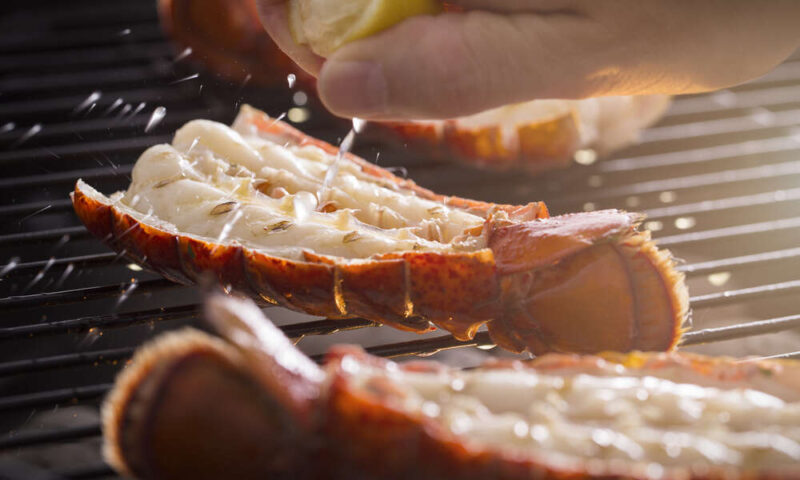
The Maine Coast Fishermen’s Association Recipe for Success
The organization has increased the number of individual donors from about 50 to nearly 600 in the past few years, thanks to a delicious assortment of community-building measures—including a seafood cookbook.
The Maine Coast Fishermen’s Association (MCFA) knew that in order to extend its reach, it had to extend its community. In the past five years, it has made concerted efforts to reach new audiences, and it’s paying off—the association increased the number of individual donors from about 50 to nearly 600.
One of those outreach efforts is particularly appetizing: a cookbook. While Catch: A Maine Seafood Cookbook helps raise money, its true purpose is to drive a deeper connection between the association’s base and the public that reaps the benefits of a strong fishing culture.
“A vibrant fishing community takes a lot more than just having good, smart, innovative fishermen; it takes the community buying into it,” said Ben Martens, MCFA’s executive director, which is what the cookbook—and the group’s other community-building initiatives—aims to do. “As we were growing as an organization, we knew the next step was to bring the broader community around the fishermen into our work.”
Consider these insights from Martens on what your association can do to build community and how you can come up with your organization’s equivalent of the MCFA’s cookbook—a program that connects with audiences in a meaningful way.
Be Authentic
When reaching out to your community, be transparent about your organization’s goals and objectives and explain why your mission matters. On top of that, use your group’s authentic voice; canned, generic emails probably won’t endear you to potential members.
“We all have a different way of interacting and building relationships with folks,” Martens said. “I get told by people that they feel like they know me because they interact with the organization, whether that’s through newsletters, merchandise, or our products.”
When thinking of new programs that will attract members, Martens said to know who you are. Remind yourself of your organization’s mission and its work. Does your idea align with those things? Then chances are it’ll resonate with your audience.
Show Your Impact
MCFA’s mission is to maintain a sustainable, thriving fishing industry in Maine. So for the organization, the cookbook was a chance to connect its work with the end result of that industry’s efforts: excellent seafood. It was a reminder that the seafood that Mainers enjoy gets to their plates in part due to MCFA’s efforts.
Work With the Pros
How do you know if a new program or initiative will resonate with your community? Ask! When compiling its cookbook, Martens said MCFA spoke with restaurants and members of the community about what recipes they’d recommend, ensuring the cookbook would be tailored with Mainers in mind.
Additionally, when making policy efforts, ask the people in your industry what needs changing and what the biggest issues are right now. Martens said if a fisherman’s reaction to MCFA’s new idea is “Why are you doing that?,” he knows the organization needs to go back to the drawing board.
“We often hear from fishermen, ‘We have organizations show up, tell us what our problem is, and hand us a solution,’” he said. “In response to that, we conducted a fisheries needs assessment for the community.”
Focus on Service, Not Revenue
Of course, every organization needs to pay the bills, but Martens warned that programs created purely as a revenue stream won’t be as impactful as programs driven by a desire to serve the community. The organization’s cookbook does generate revenue, but it also gives members a way to enrich their culinary experiences and enjoy the process of cooking, improving their lives in a tangible way.
“I see organizations drift into programmatic work that’s driven by money, not community. That’s how you start to lose community support when you have people wondering why you’re doing something,” Martens said. “Our guiding light is, ‘We’re all in this together.’”
The Impact of Community Growth
Since its growth, MCFA has had the resources to be more agile, which it used to withstand the pandemic’s significant hit on the food service industry. Due to restaurant closures, fishers in the community had nowhere to sell what they caught. But at the same time, Martens said food insecurity was skyrocketing in the state. So MCFA, in the middle of a pandemic, launched a new program that bought fish from Maine fishers at a fair price and donated it to local food-insecure communities. Martens said the program is in high demand even now, and relies on donations from the local population.
“If this was going to work, we needed buy-in from our community,” Martens said. “It was empowering for us. We felt like we could be bold because we had seen from our community that they cared about our work.”
(mphillips007/iStock/Getty Images Plus)






Comments